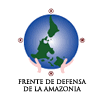Renowned Aboriginal Rights Lawyer Peter Grant Joining Case Against Chevron on Behalf of Ecuadorian Communities

Amazon Defense Coalition
10 October 2017 - FOR IMMEDIATE RELEASE
Contact: Karen Hinton at +1.703.798.3109
Toronto, Canada – Peter Grant, the renowned Canadian aboriginal rights lawyer who recently helped to win a major case before the country's Supreme Court, is joining the legal team of indigenous groups in Ecuador who are moving to enforce a $12 billion environmental judgment against Chevron in Canadian courts.
"I am honored to represent indigenous persons who have been harmed by the highly irresponsible oil activities of Chevron in the Amazon rainforest of the Ecuador," said Grant, who just returned from a tour of the affected area of the South American nation with Canadian indigenous leaders Phil Fontaine and Ed John and Greenpeace Co-Founder Rex Weyler.
(See here for a CBC story on the Ecuador visit by Grant and here for comments from Fontaine and Ed John backing collection of the Ecuador judgment.)
"We are going to urge all courts in Canada to reject Chevron's obstructionist tactics and move this case to a final resolution as soon as possible," said Grant, who works out of Vancouver. "Twenty-four years of litigation is simply too long for any case, particularly one involving vulnerable First Nations groups who are suffering from cancers and other dramatic health impacts from oil contamination."
Grant will make his first appearance on the matter today in the Ontario Court of Appeal where argument is scheduled for an 11th hour effort by Chevron's lawyers to impose a $1 million costs order on the impoverished indigenous groups. The underlying environmental claims originally were filed in 1993, but Chevron has used at least 60 law firms and 2,000 lawyers to retaliate against the indigenous groups and to obstruct justice and delay the process both in Ecuador and other countries, said Aaron Marr Page, the longtime U.S. lawyer for the affected communities.
After Chevron lost the underlying case in Ecuador – the country where it insisted the trial be held and where it had accepted jurisdiction – the company began to attack Ecuador's entire judiciary as unfit and refused to pay the judgment. Since then, Chevron has sued lawyers, environmental groups, bloggers and other supporters of the Ecuadorians in retaliation for their involvement and threatened the indigenous groups with a "lifetime of litigation" if they persist in trying to enforce the judgment.
Due to Chevron's strategy of delay, the Canada enforcement action is now in its fifth year without even a trial to resolve the issues. The case has gone to the Canada Supreme Court on a jurisdictional question, has been heard twice by the Ontario Court of Appeals on various technical issues, and twice at the trial level on ancillary motions brought by Chevron. No Canadian court has forced Chevron to put in evidence related to its "fraud" defense so the ultimate issue of enforcement can be resolved. The indigenous groups maintain Chevron's fraud defense is a function of the company's fabricated evidence.
"It is obvious the indigenous groups in Ecuador who won the judgment are now getting the major run-around from Chevron and its army of lawyers in Canada," said Page. "They at least need to be given a chance to present the overwhelming evidence against Chevron on which the Ecuador court decision was based and the lies and deceit Chevron has used to try to block enforcement and intimidate adversary counsel."
Grant, who has represented aboriginal groups in Canada for four decades out of his Vancouver-based law firm, previously worked closely with Fontaine and law professor Kathleen Mahoney to help settle the residential schools case on behalf of indigenous victims in Canada who had been taken from their homes and forced into boarding schools. Just last week, he was on the winning side in a Canada Supreme Court decision regarding confidentiality of information related to abuses in that program.
In representing the Ecuadorians, Grant joins forces with well-known Canadian lawyer Alan Lenczner. Lenczner has represented the Ecuadorian indigenous groups in Canada since 2012 and was the lawyer who won a unanimous Canada Supreme Court decision in 2015 denying a Chevron attempt to block the enforcement action on jurisdictional grounds.
Representatives of the affected communities said they were "thrilled" to have Grant join the case.
"To pair Peter Grant with Alan Lenczner is great news for our side as we attempt to compete with Chevron's large team of lawyers in Canada whose sole goal seems to be to delay and obstruct the process," said Luis Yanza, a Goldman Prize recipient and Ecuadorian community leader. "Peter's credentials in aboriginal rights and his passion for justice are without parallel.
"We again urge Canadian courts to hold Chevron's feet to the fire so this case can be resolved on the merits as soon as possible, as our people are suffering," said Yanza.